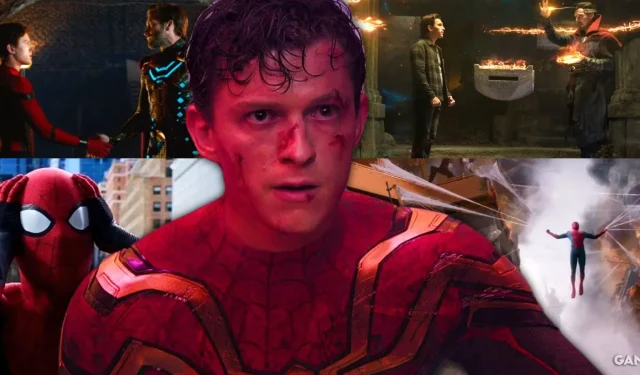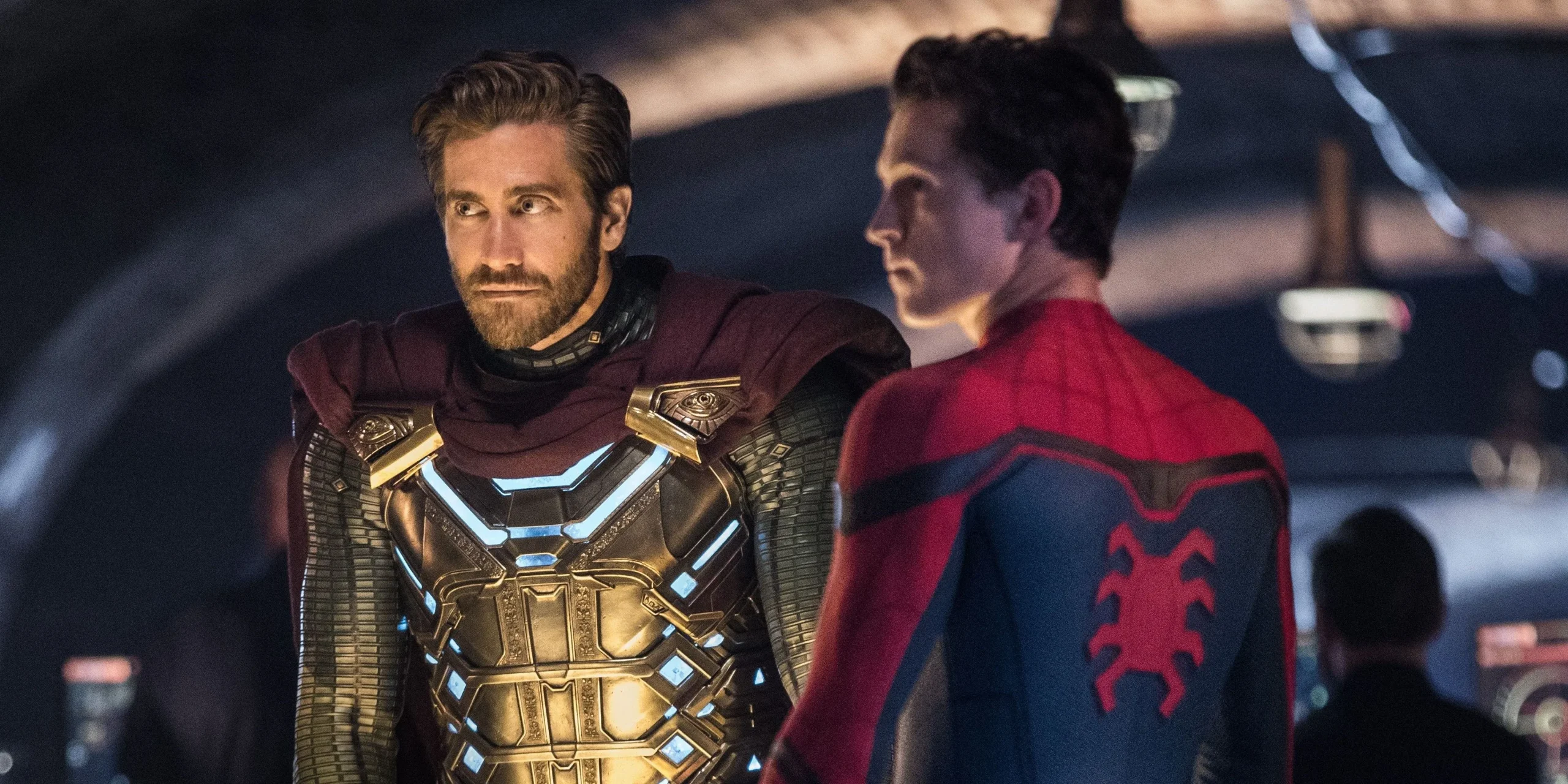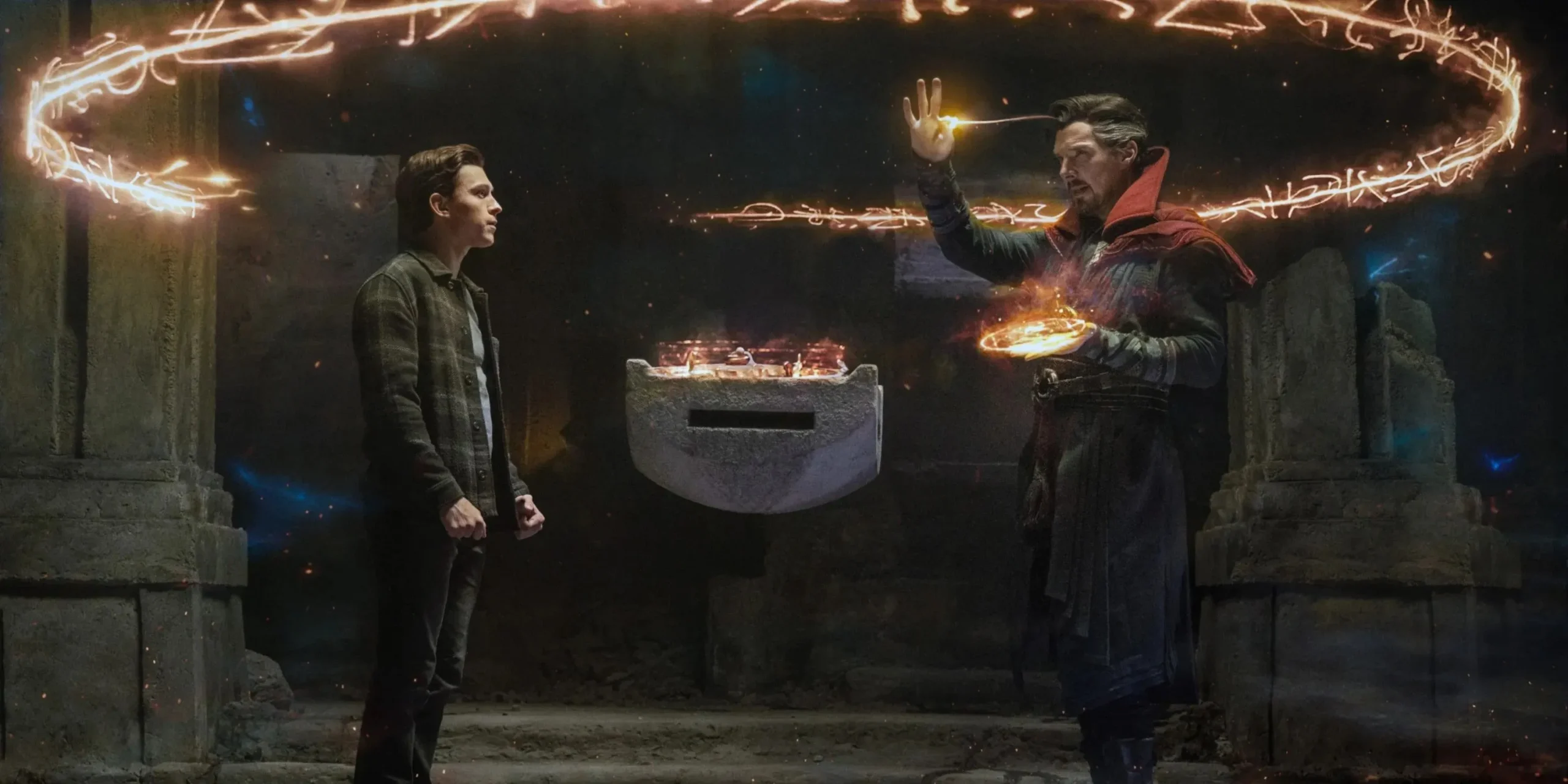
Essential Insights
- Peter Parker navigates the journey of responsibility through his errors, often leading to unintended harm.
- The Spider-Man of the MCU appears more committed to correcting his blunders than to fighting crime, resulting in chaos.
- Peter’s innocent misjudgments have significant repercussions, emphasizing his character development and the lessons he acquires.
While it’s indisputable that Tom Holland’s Spider-Man embodies a good-hearted hero, he often seems to create more complications than resolutions. His journey is marked by growth through missteps, but those experiences appear to culminate in more accidents than victories. The perception of MCU’s Peter Parker may vary among fans, yet as J. Jonah Jameson would assert, Spider-Man could easily be labeled a “public menace.”
Every hero makes errors and learns from them, a theme prevalent in Spider-Man’s various film and comic narratives. Nonetheless, the MCU’s “Home”trilogy presents a Spider-Man who dedicates more time to rectifying his own mistakes than to effectively combatting crime in his neighborhood. It’s worth noting that there are two perspectives to this narrative, shedding light on the perception of Tom Holland’s rendition as a uniquely flawed hero.
In traditional portrayals, Peter Parker is often depicted as a socially awkward nerd, but Tom Holland infuses this character with extra charm through his quirky, bungling personality. Unfortunately, this awkwardness frequently bleeds into his superhero responsibilities, leading to unintentional chaos. Across his solo films, Holland’s Spider-Man grapples with the consequences of his actions, learning the essence of responsibility. Although a superhero should be adept at rescuing those in peril, this version of Spider-Man often finds himself at the center of the very crises he aims to resolve. Numerous instances throughout Jon Watts’ Spider-Man trilogy illustrate this notion, yet they typically come with logical explanations or significant outcomes to rationalize his conduct.
With great power comes great responsibility.
The Staten Island Ferry Incident in Homecoming
In his debut solo venture as Spider-Man within the MCU, Peter Parker is depicted as eager and somewhat naive. His desire to gain approval from Tony Stark propels him to take reckless actions. For example, in his attempt to confront Adrian Toomes (the Vulture) regarding his illegal arms deals, he inadvertently triggers a catastrophic event—the Staten Island Ferry gets severed in two. Thankfully, Stark arrives just in time to mitigate the situation and safeguard lives, preventing Peter from worsening the crisis.
Ironically, Tony had to rescue Peter even earlier in this film after the child-sized parachute on his homemade suit malfunctioned. In a fit of frustration, Stark confines Peter by taking back his high-tech suit, forcing him to face the Vulture with only his DIY attire and some aid from his friend Ned, who supports him from afar. Ultimately, while Peter learns important lessons, it comes at the expense of a disastrous ferry mishap.
Blindly Trusting Mysterio in Far From Home

Before placing blame on Peter for his decisions in Spider-Man: Far From Home, it’s crucial to acknowledge that he is coping with the emotional fallout of Tony Stark’s demise. The weight of his mentor’s legacy is overwhelming, leaving him to seek an escape from his responsibilities. Nevertheless, Peter escalates his naive tendencies by entrusting Stark’s eyeglasses to Jake Gyllenhaal’s Quentin Beck (Mysterio) as a token of trust. This impulsive decision empowers Mysterio to gain control over the E.D.I.T.H. AI, along with Stark Industries’ vast data and weaponry.
Mysterio orchestrates collateral damage through his holographic illusions, pretending to be a hero while posing significant dangers. Yet, it is Peter who jeopardizes his friends by allowing a complete stranger access to critical resources. While he manages to prevent further escalation, this grave error nearly exposes his identity, leading to far-reaching consequences. This mirrors Peter’s character evolution, which director Jon Watts elaborated on in a 2019 interview with Entertainment Weekly.
At the beginning of this film, Peter is yearning for a vacation, to say the least. It’s a narrative about the world signaling to him, ‘You need to step up and mature,’ while he insists, ‘I just want to be a kid and go on a trip.’
Unleashing the Multiverse in No Way Home

This scenario complicates the defense of Tom Holland’s Peter Parker, yet it serves a narrative purpose by facilitating one of the most memorable Spider-Man crossovers. Requesting Doctor Strange to cast a memory-altering spell to keep his identity hidden initially seems reasonable. However, Peter’s motives, stemming from a desire to be accepted at MIT, reveal a selfish and reckless side. His meddling during the spell leads to its corruption and ultimately tears open the multiverse.
Assessing the repercussions is daunting; Peter’s interventions summon not just one, but five infamous Spider-Man villains to his universe, ultimately costing him his beloved Aunt May. This is arguably one of the most profound consequences he has faced throughout his MCU journey, delivering a lesson with significant weight. By the conclusion of the film, Peter’s identity is obliterated from the memories of those closest to him, such as Ned and MJ. Ultimately, he sacrifices his personal desires for the collective well-being and grasps the true meaning of being Spider-Man.
Clearly, each installment of the MCU Spider-Man series endeavors to reinterpret the adage of “great power, great responsibility.” In contrast to the portrayals of Tobey Maguire and Andrew Garfield, Tom Holland’s depiction seems more entrenched in damage control than in heroism or romantic pursuits. However, the anticipated Spider-Man 4 could present a transformed Peter Parker—one exhibiting more composure and experience in tackling challenges, along with greater accountability for his choices.




Leave a Reply